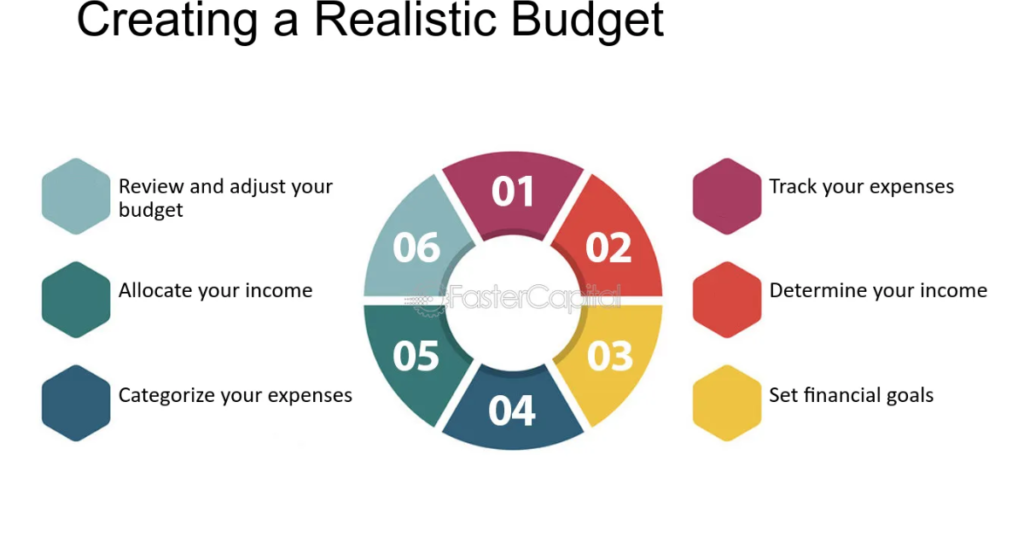10 Smart Ways to Save Money on a Low Income
Here are 10 Smart ways to save money on a low income without sacrificing your quality of life.Saving money while living on a tight budget can feel overwhelming. Whether you’re earning minimum wage or managing family expenses on a single income, smart financial habits can help you stretch your dollars further. The good news is that you don’t need a high salary to build a sense of financial security. With some planning and consistency, anyone can develop smart money-saving habits—even on limited income.
1. Create a Realistic Monthly Budget

Before you can save, you need to understand where your money goes. Budgeting is the foundation of any smart financial plan. Start by listing all sources of income and monthly expenses.
Use a free budgeting app or even a notebook to write down essentials like rent, groceries, utility bills, transportation, and debt payments. Allocate a small portion for savings—even if it’s just $20 per month.
If you’re searching for “how to budget money effectively on a low income”, begin by tracking every expense and cutting non-essentials.
2. Cancel Unused Subscriptions and Recurring Charges
Many people lose money every month on unused subscriptions—gym memberships, multiple streaming services, or paid apps.
Review your bank statements and see where you can cut back. Consider switching to a family plan, free version, or bundled deal that costs less.
This is one of the easiest ways to reduce monthly expenses and free up extra money without changing your lifestyle drastically.
3. Grocery Shop Smarter and Plan Ahead

Groceries are a necessary expense, but they’re also one of the easiest areas to save. Start by making a weekly meal plan and shopping list. Stick to the list and avoid buying snacks and extras on impulse.
Buy in bulk when possible and choose store-brand products over name-brand. Compare prices between local grocery stores, and use discount apps or coupons whenever available.
If you’re looking for “grocery shopping tips for families on a tight budget”, planning and buying smart can save you hundreds each year.
4. Use Public Transportation or Carpool When Possible
Car expenses—like fuel, maintenance, parking, and insurance—add up quickly. If you live in an area with a good public transportation system, consider taking the bus or train a few days a week.
Another great option is carpooling with co-workers or neighbors. Even car-sharing for grocery runs or school pickups can lower fuel costs.
Those searching “how to save money on transportation without owning a car” will benefit from these low-cost alternatives.
5. Lower Your Utility Bills with Simple Habits
You don’t need expensive upgrades to reduce your electric and water bills. Start with small changes like turning off lights when leaving the room, using energy-efficient light bulbs, and unplugging appliances when not in use.
Switch to cold water for laundry and hang dry clothes when possible. In winter, use extra blankets and lower the thermostat slightly to save on heating costs.
Looking for “simple ways to reduce monthly utility bills on a budget”? These changes can add up to big savings over time.
6. Cook at Home More Often Than Eating Out
Restaurants and takeout meals are convenient, but they can drain your wallet fast. Preparing your meals at home not only saves money, but also lets you control nutrition and portion sizes.
Batch cooking meals for the week is a smart way to save both time and money. Cook affordable meals like rice and beans, vegetable soups, or pasta dishes that can stretch across multiple servings.
For those asking “how to save money on food without sacrificing taste”, home-cooked meals are your best friend.
Also Visit This How to File an Insurance
7. Find Free or Low-Cost Entertainment
You don’t need to spend a lot to enjoy your time. Visit your local library for free books, movies, and events. Many communities offer free activities in parks, like movie nights, cultural festivals, and fitness classes.
Explore free entertainment apps or websites for free music, games, and courses. Host game nights at home or volunteer at events to socialize without spending money.
If you’re looking for “fun things to do on a low budget with family or friends”, free entertainment is everywhere—you just need to know where to look.
8. Set Small and Achievable Saving Goals
Saving money doesn’t have to mean large amounts. Start with a small, realistic goal—like saving $1 a day or $10 a week. Even small savings can add up over time.
Use a labeled jar or envelope system for visual motivation, or try a savings challenge like the 52-week saving plan.
Searches like “how to save money when living paycheck to paycheck with no extra income” prove that people want solutions that fit tight budgets—and this strategy works.
9. Take Advantage of Government and Community Programs
Many people are eligible for assistance programs but don’t know it. Look into programs such as SNAP (Supplemental Nutrition Assistance Program), WIC (Women, Infants, and Children), Medicaid, or local food pantries.
There are also free childcare, school lunch, and rent assistance programs in many cities. These resources are designed to help low-income families stabilize their finances.
If you’re searching “what financial help is available for low-income households”, your state or county website is the best place to start.
10. Avoid High-Interest Debt and Use Cash When Possible
Credit card interest and payday loans can keep you stuck in a cycle of debt. If possible, avoid using high-interest borrowing and stick to cash or debit for most purchases.
Create a habit of using the envelope system—set aside cash for each spending category to avoid overspending. When the envelope is empty, stop spending in that area.
People searching “how to control spending and avoid debt on a low income” often find that switching to a cash-based system gives better control over finances.
Conclusion
Saving money on a low income isn’t about cutting out everything you enjoy—it’s about making smarter decisions with the money you already have. By applying even a few of the strategies above, you can reduce financial stress and start building a better future.







One Comment